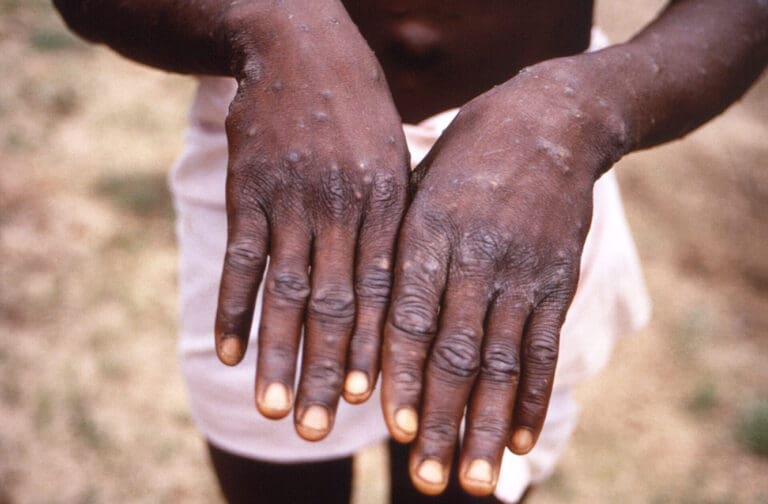Sierra Leone is intensifying its efforts to contain an mpox outbreak, with 18 cases reported since January 13, 2025.
The National Public Health Agency, supported by partners like the World Health Organization (WHO), is implementing a multi-pronged strategy to detect, treat, and prevent further spread of the disease.
Key measures include enhanced disease surveillance, active case finding and investigation, and reinforced clinical care. WHO has provided over US$38,000 in essential laboratory supplies and personal protective equipment, including gloves, gowns, face shields, and testing kits. Treatment kits for both inpatients and outpatients have also been procured, and WHO is providing technical expertise to clinicians and responders.
Capacity building has been a priority. WHO previously supported training for 65 health workers and laboratory personnel on diagnostics and sample collection, and an additional 160 health workers on integrated approaches to surveillance, case management, infection prevention, laboratory practices, and risk communication.
Vaccination efforts are also underway. 61,300 vaccine doses are expected to arrive in Sierra Leone in the coming weeks, thanks to support from WHO, Gavi, the Vaccine Alliance, the Africa Centers for Disease Control and Prevention, and UNICEF. These organizations will also cover operational costs for the vaccination campaign, prioritizing at-risk individuals, including health workers. Public awareness campaigns, coordinated by partners like UNICEF, are being implemented to educate the public about the disease and promote preventive measures.
“Despite numerous challenges, WHO has successfully mobilized resources at all levels to deliver vital commodities, including vaccines,” says Dr. George Ameh, WHO Representative in Sierra Leone. “We will continue to support the country to bring this current outbreak under control.”
The mpox outbreak in Sierra Leone is part of a larger upsurge in the Democratic Republic of the Congo and neighboring countries, declared a public health emergency of international concern in August 2024. Since 2024, 22 African countries have reported cases, with 12 currently experiencing active outbreaks. WHO and its partners are working closely with affected countries to control these outbreaks.
Professor Foday Sahr, Director of Sierra Leone’s National Public Health Agency, expressed gratitude for the ongoing support from WHO, stating that it “continues to ensure our ministry and agency succeed in safeguarding the health of our citizens.”
Mpox, a viral disease caused by an orthopoxvirus, spreads primarily through close contact with an infected individual. Symptoms include a painful rash, swollen lymph nodes, and fever. Severe cases can be fatal.
ABJ/APA


